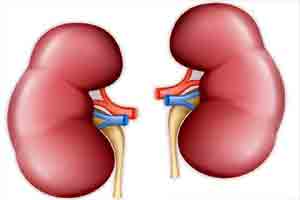- Home
- Editorial
- News
- Practice Guidelines
- Anesthesiology Guidelines
- Cancer Guidelines
- Cardiac Sciences Guidelines
- Critical Care Guidelines
- Dentistry Guidelines
- Dermatology Guidelines
- Diabetes and Endo Guidelines
- Diagnostics Guidelines
- ENT Guidelines
- Featured Practice Guidelines
- Gastroenterology Guidelines
- Geriatrics Guidelines
- Medicine Guidelines
- Nephrology Guidelines
- Neurosciences Guidelines
- Obs and Gynae Guidelines
- Ophthalmology Guidelines
- Orthopaedics Guidelines
- Paediatrics Guidelines
- Psychiatry Guidelines
- Pulmonology Guidelines
- Radiology Guidelines
- Surgery Guidelines
- Urology Guidelines
Low Levels of Circulating Protein Linked To Kidney Function Decline : ASN

Highlight
- Decreased blood levels of a protein called soluble klothos were linked with an increased likelihood of experiencing kidney function decline in a group elderly well-functioning adults.
Washington : Higher blood levels of a protein called klotho may help preserve kidney function, according to a study appearing in an upcoming issue of the Journal of the American Society of Nephrology (JASN). Although additional studies are needed, the findings point to a potential target for preventing and treating kidney disease.
Soluble klotho is a protein circulating in the blood that is thought to have anti-aging properties. Although the exact mechanism of action of soluble klotho remains to be identified, the protein has been shown to influence multiple cellular and endocrine pathways. The kidney has the highest levels of klotho expression and is likely the major source of soluble klotho. Not surprisingly, therefore, levels of klotho tend to be low in patients with kidney disease.
To assess how klotho levels might affect kidney function, David Drew, MD, MS (Tufts Medical Center) and his colleagues examined information from the Health Aging and Body Composition study, which included a diverse group of elderly well-functioning adults with measures of soluble serum klotho and repeated measures of kidney function over 10 years of follow up.
In the researchers’ analysis of 2496 study participants, each twofold higher level of klotho was linked with a15-20% lower likelihood of experiencing kidney function decline during follow-up, after adjusting for various factors such as demographics, comorbidities, and kidney disease risk factors.
“We found a strong association between low soluble klotho and decline in kidney function, independent of many known risk factors for kidney function decline,” said Dr. Drew. “This suggests that klotho could play a role in the development of chronic kidney disease, although additional research will need to confirm this. This also raises the possibility that klotho could be an important therapeutic target for future clinical trials.”

Disclaimer: This site is primarily intended for healthcare professionals. Any content/information on this website does not replace the advice of medical and/or health professionals and should not be construed as medical/diagnostic advice/endorsement or prescription. Use of this site is subject to our terms of use, privacy policy, advertisement policy. © 2020 Minerva Medical Treatment Pvt Ltd